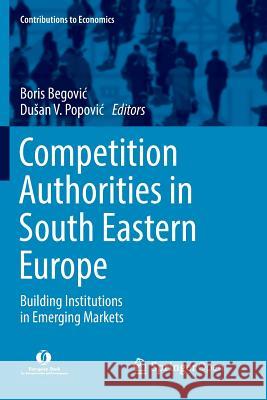Competition Authorities in South Eastern Europe: Building Institutions in Emerging Markets » książka
topmenu
Competition Authorities in South Eastern Europe: Building Institutions in Emerging Markets
ISBN-13: 9783030095437 / Angielski / Miękka / 2019 / 217 str.
Kategorie:
Kategorie BISAC:
Wydawca:
Springer
Seria wydawnicza:
Język:
Angielski
ISBN-13:
9783030095437
Rok wydania:
2019
Dostępne języki:
Numer serii:
000036348
Ilość stron:
217
Waga:
0.33 kg
Wymiary:
23.39 x 15.6 x 1.24
Oprawa:
Miękka
Dodatkowe informacje:
Wydanie ilustrowane











